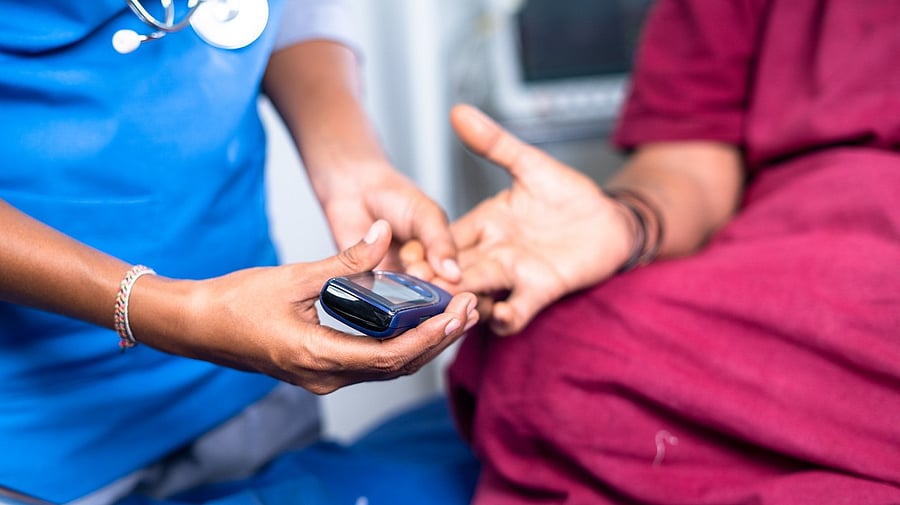
Doctor checking sugar or diabetes level of a patient. (Representative image)
Credit: iStock Photo
Mumbai: A new study demonstrates how a structured online nutrition programme could address India's diabetes epidemic by removing key barriers to dietary adherence.
The study, led by the Physicians Committee for Responsible Medicine (PCRM), was published in the American Journal of Lifestyle Medicine.
The study showed that participants who followed a physician-led, plant-based nutrition programme experienced measurable improvements in health—including reductions in medication use, body weight, blood sugar, and cholesterol levels.
The findings offer potential insights for India, where diabetes currently affects more than 101 million adults, with an additional 136 million in the prediabetes stage.
"India's diabetes crisis requires solutions that work within our healthcare realities," said Dr Vanita Rahman, MD, the study's lead author and internal medicine physician with PCRM.
"While we've long known that dietary changes can effectively manage diabetes, implementation has been challenging due to limited consultation time, inconsistent follow-up, and accessibility barriers—particularly in tier-2 and tier-3 cities,” Dr Rahman added.
“These results are especially relevant in the Indian context, where vegetarian and plant-forward dietary habits are already part of cultural norms. With simple adaptations to lower fat content and focus on whole foods, these interventions can be easily incorporated within Indian households,” noted Dr Rahman.
"While the study was conducted in the US, its online format and focus on practical implementation offers a blueprint that Indian healthcare providers could readily adapt," Dr. Rahman added.
Such a physician-led programme can be easily implemented in clinical and hospital settings across India, and lead to significant improvements in diabetes management. By integrating nutrition education into routine care and empowering support staff to conduct regular follow-ups, hospitals and clinics can enhance patient outcomes while decreasing costs.
Public sector support can further strengthen such a model by making this low-cost intervention available at a population level. The physician-led programme can also be offered in the corporate setting and lead to improvements in employee health and productivity.
Over the past three years, the Physicians Committee for Responsible Medicine has engaged with more than a dozen medical colleges and hospitals across India, including AIIMS Delhi, to promote the inclusion of nutrition science in clinical training. Thousands of Indian medical professionals and students have participated in PCRM-led seminars focused on the role of food in preventing and managing chronic diseases.